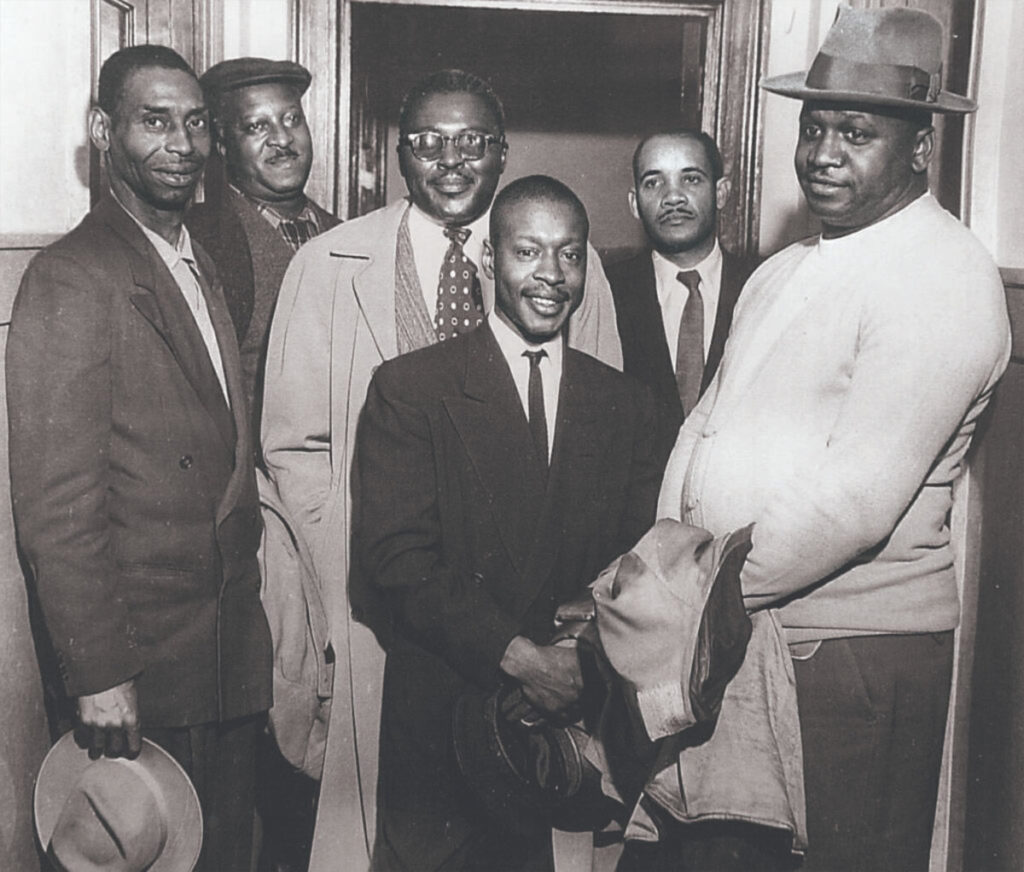By Ryan Wilson,
Manager of Program Evaluation & Assessment,
The First Tee home office

Greensboro, N.C. earned its place in civil rights history thanks to the Greensboro Four who sat down at F.W. Woolworth’s segregated lunch counter and asked to be served a meal.
But what many people don’t know is the trail of civil disobedience had already been blazed in Greensboro five years earlier. Before the sit-in at Woolworth’s, the lesser known Greensboro Six did something so brave it would serve as a catalyst for many other civil rights leaders.
In 1955 the city-owned Gillespie Golf Course did not allow play by African Americans, nor had it ever, despite that the U.S. Supreme Court had already made it illegal for government-owned golf courses to discriminate. However, loopholes were found in the system by leasing courses to private groups for as little as $1. The private groups then restricted play to members and their guests; none of whom were black.
Breaking Down Barriers at Gillespie Golf Course
On the morning of December 7,1955 the Greensboro Six, led by Dr. George C. Simkins, decided they were going to fight this injustice. The six golf enthusiasts walked into the Gillespie pro-shop to sign-in and were met by a surly attendant who informed them they were not welcome. Undeterred, the men peacefully laid their 75-cent green fee by the cash register and teed off.
The head pro found the group midway through the front nine and began cursing and threatening them. In the book Uneven Lies, Dr. Simkins recalls the pro asking them why they were out there. The response was, “We’re out here for a cause–the cause of democracy!”
The group finished out nine holes and headed home, but later that night, the six golfers were arrested in their homes. All were convicted on counts of trespassing and had to serve 30-day jail sentences.
What ensued next was series of court cases and appeals to clear the golfer’s records and continue the fight desegregating municipal golf courses. Eventually, Judge Johnson J. Hayes forced the city to allow African Americans to play Gillespie Golf Course.
The city was given two weeks to get their affairs in order, but days before Gillespie officially opened to minorities, someone snuck in the clubhouse and burnt it to the ground. Dr. Simkins said, “Someone was determined to keep us from playing that course, even if it meant they couldn’t play it either.” It would be seven years before Greensboro officials would build another clubhouse and re-open the course.
The First Tee Represents A New Era for Golf
Times have changed for the better since the Greensboro Six first walked Gillespie’s rolling fairways. Today, Gillespie is one of two flagship program locations for The First Tee of the Triad. On any given day of the week you can find junior golfers of every ethnicity learning golf, life skills and character development together.
Mike Barber, executive director of the chapter shared the following thoughts.
“The U.S. Supreme Court validated the courage of the Greensboro Six. Now 56 years later, Gillespie is a great facility for our chapter, supporting year-round programming, a learning center, full length and short courses, indoor instructional studio, and premiere outdoor practice facilities. These assets are used to give the surrounding economically-challenged community the opportunities deserved but not otherwise available.
Our chapter believes that through the mission of The First Tee, the courageous efforts of the Greensboro Six lives on in providing equal opportunity and equal access to all.”
Gillespie’s current Head Professional Bob Brooks, PGA is a nationally trained coach with The First Tee and is a major supporter of the program.
Mr. Brooks had this to say when asked about the history of Gillespie and The First Tee program:
“Gillespie is an integral part of the community. The impact of the Greensboro Six will be felt for generations to come. Today Greensboro Parks and Recreation operates with a vision of: “Building better lives, better community. Come join us.” That vision couldn’t be more evident than at Gillespie. Through our partnership with The First Tee of the Triad, we are enriching the lives of kids from all over the city, and hope to have an even bigger impact on the community than that day back in 1955.”
The Greensboro Six took a stand for a cause much bigger than just playing golf on a nice course. These men knew that they were fighting for the future of all black golfers. What they didn’t know is the impact their actions would have on our nation. Today, The First Tee honors these men for their incredible, yet seldom told, contribution to the game of golf and American history.
